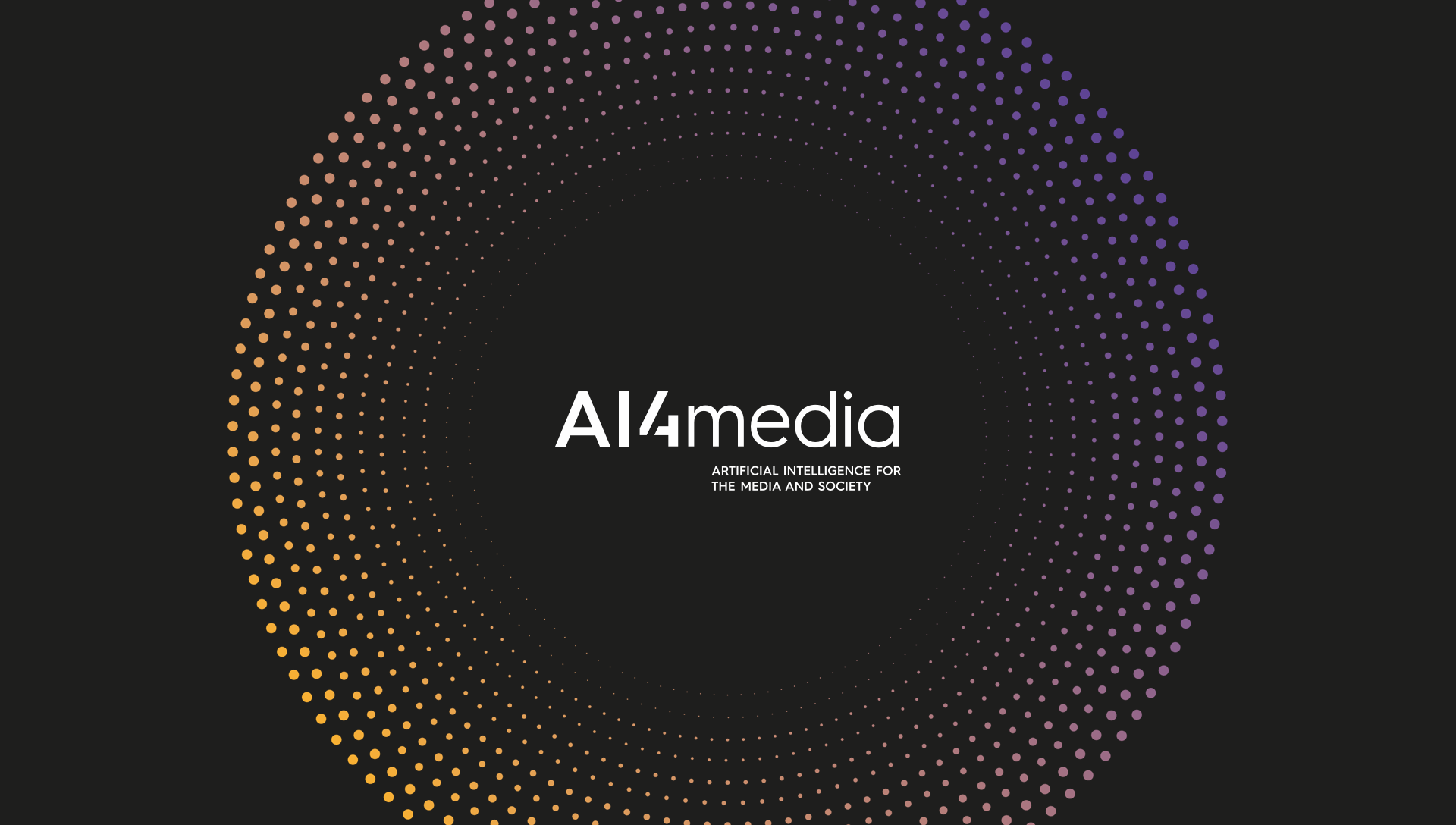H2020 AI4Media - A European Excellence Centre for Media, Society and Democracy

AI4Media is a 4-year-long project funded under the European Union’s Horizon 2020 research and innovation programme, the project aspires to become a Centre of Excellence engaging a wide network of researchers across Europe and beyond, focusing on delivering the next generation of core AI advances and training to serve the Media sector, while ensuring that the European values of ethical and trustworthy AI are embedded in future AI deployments.
AI4Media is composed by 30 leading partners in the areas of AI and media (9 Universities, 9 Research Centres, 12 industrial organisations) and a large pool of associate members, that will establish the networking infrastructure to bring together the currently fragmented European AI landscape in the field of media, and foster deeper and long-running interactions between academia and industry.
Furthermore, the project envisages a close collaboration with AI4EU platform in the form of integrating the project’s outputs such as modules, services and algorithms into the AI4EU platform, as well as, establish interactions with the AI4EU network. Moreover, AI4Media will also seek to maximize interactions with relevant Digital Innovation Hubs (DIH) across Europe and other national initiatives.
Scope of AI4Media
Besides its economic value, the Media is a crucial sector with a great power that can shape societal values, debates, opinions and could nurture a democratic society or, if things go wrong, lead to polarisation and crises. Europe has a unique, human-centric and trustworthy ethical brand of Artificial Intelligence (AI) to offer to the world, and a field where such AI is needed and can offer a strong advantage to European actors is the Media.
AI technologies hold the promise of disrupting the media industry through:
- advances in content synthesis, analysis, and distribution, and offering new deeper insights into the complex and rapidly evolving social processes that unfold online and offline through the capabilities for large-scale sensing of citizen activities, interests and opinions.
- helping to redefine and radically improve the democratic role of the media by enabling new ways of getting informed, deliberation, political participation and decision making.
- supporting to reshape the relationship between the media and its audiences, making it more responsive, and better reflect the needs of citizens in a data field society.
- creating new exciting opportunities for the realisation of public values, such as media diversity, freedom of expression, inclusiveness, a flourishing public sphere also at the local level.
- finding new ways to inform and engage with the audience that will allow the media to compete in the digital marketplace of ideas with new players, most notably platforms.
















